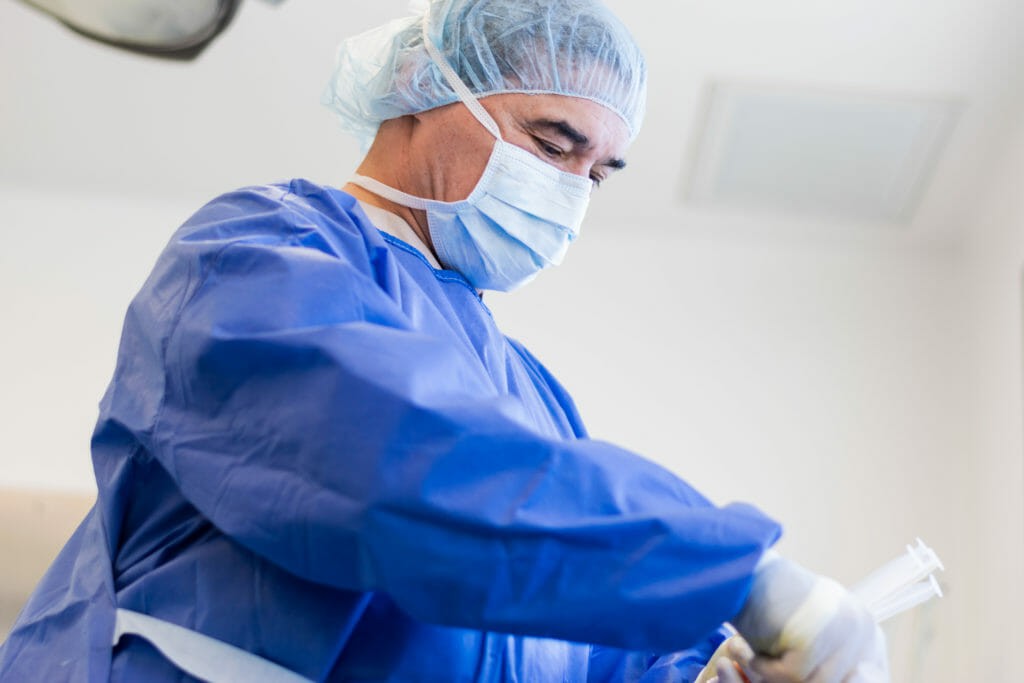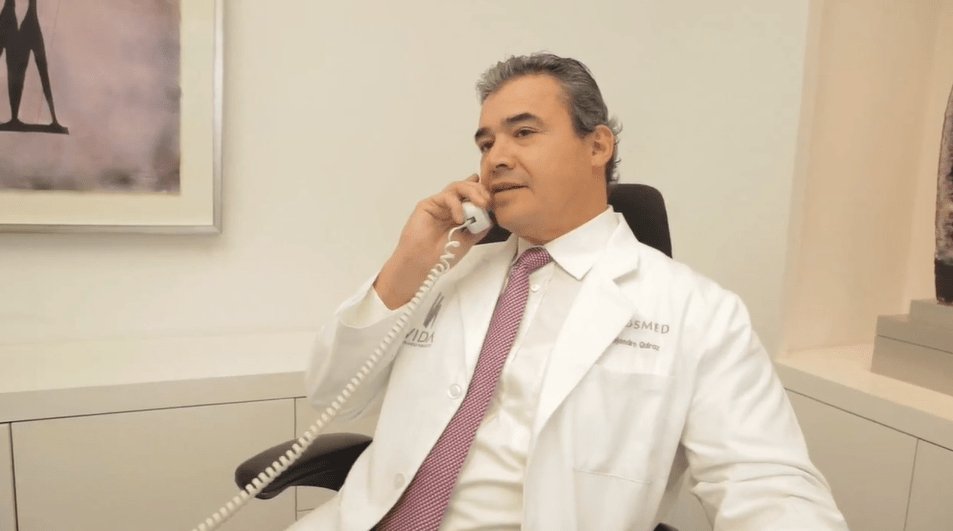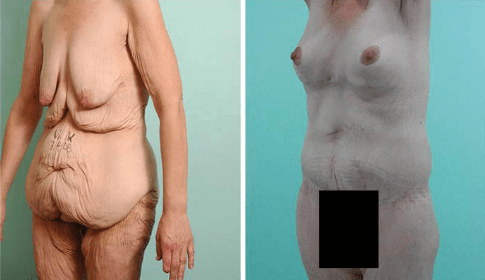Interview: Dr. Quiroz, Mexico’s Top Plastic Surgeon, on Post-Weight Loss Plastic Surgery and visiting Tijuana


Having bariatric surgery and losing a substantial amount of weight is a great achievement. However, for bariatric patients, their weight loss journey doesn’t end once they’ve shed all those extra pounds. Once they’ve reached a healthy weight, usually 12 to 18 months post-surgery, patients often deal with excess tissue, stubborn fat, and heavy rolls or flaps of loose skin that can make them feel unattractive.
The reality is that even if patients keep on losing weight and start working out regularly, damaged tissue and excess skin won’t disappear without some extra help. The good news is that an experienced plastic surgeon can help!
Post-weight loss cosmetic surgery is specifically designed to help bariatric patients improve the shape and tone of their body and face by removing excess skin and stubborn fat, reshaping breasts and buttocks and even rejuvenating face and neck.
Dr. Alejandro Quiroz, who has more than 30 years of plastic surgery experience and runs VIDA Wellness and Beauty in Tijuana, sat down with Bariatric TV to answer frequently asked questions about post-weight loss plastic surgery with him in Tijuana, Mexico.
Bariatric TV: Why don’t you tell us about yourself?
Dr. Quiroz: I’ve been a plastic surgeon for over 30 years and I’ve been doing post-weight loss surgery for more than 20 years.
Bariatric TV: You mentioned that you have experience with bariatric patients, so, why don’t you tell us what do they need to be aware of when researching surgeons?
Dr. Quiroz: First of all, it’s important they make sure that the doctor they are seeking actually has experience with bariatric patients. Bariatric patients have specific needs, such as being more susceptible to possible complications. Therefore, their doctor needs to be familiar with bariatric patients, the different weight-loss surgeries and how they may complicate future procedures. As a doctor who is familiar with bariatric surgery, we can anticipate possible complications and study the patient before the surgery for a good outcome.
Bariatric TV: You work in Mexico and we have heard about safety concerns and border violence. Can you tell us how safe is it to have surgery in Mexico?
Dr. Quiroz: Well, I can tell you that I go to Mexico every day and I have been going to Mexico every day for the past 20+ years. I have never experienced violence or faced any issues while crossing the border and neither have my patients. Patients go to the doctor’s office or to the aftercare facility and they are always with medical personnel and being taken care of. In over 20 years, we’ve never had problems with safety or border crossing.
Bariatric TV: For people who travel to have surgery with you, what provisions are made for their aftercare once they return home?
Dr. Quiroz: That’s a great question! The main thing is to keep the patients within the premises or nearby long enough to prevent any complications. So, we keep them here 10 to 12 days. Also, for most patients, we have already been in touch with some of the physicians that they are going to follow up with back home. Once the patients leave, they are pretty much stable and we are past the stage where bleeding or infection is possible. However, we always make ourselves available for consultation. For even the smallest question, we maintain our relationship with the patient and they can always reach out via email or phone. We always keep open communication with the physician that will continue to take care of them when they leave as well.
Bariatric TV: It sounds like you do a warm handoff to whoever their caregiver might be in their local area, so they’re familiar with what the patient has gone through and who to contact if they have any questions.
Dr. Quiroz: Precisely! We start that relationship even before they come in. We need to be certain that the patients are in good condition. Just as we discuss different procedures for after weight loss, we also talk about the patient’s bariatric history. For example, a patient had a gastric bypass or lap band? We consider these and always analyze their diet, supplements , and nutrition. We require that the patients send us lab work, medical history and just about everything we need to assess that the conditions are optimal for this surgery.


Bariatric TV: What can patients do to have the best outcome for surgery with you? What can they start working on if they know that they want to have plastic surgery and they know they are going to come see you before the surgery?
Dr. Quiroz: The analysis of when it’s best to have plastic surgery starts way before. First, we must remember that every patient is unique and as such we need to start analyzing their history to determine when would be best for them to have surgery. After that, we need to go over nutritious status, lab work, follow ups with their bariatric surgeon, what supplements are they taking, etc. We want them to be in the best state of health but nothing too radical. Sometimes patients go overboard and take vitamins and “natural” products to help them lose weight without knowing that these products may interact with the anesthesia. I would say having common sense, checking your nutrition status, taking the supplements the doctor gave you, and checking all your lab work are a good place to start before having plastic surgery.
Bariatric TV: Are there any innovations in reconstructive surgery for bariatric patients?
Dr. Quiroz: First of all, when it comes to plastic surgery for bariatric patients there are no set rules. Everybody gains and loses weight in a different manner, so there really are no limits. There are constant improvements and novelties in everything, such as fat injections and fat transplantation. For example, I just treated a patient who went from being 600 lbs to 250 lbs after a gastric bypass. With him, we were able to do a surgery with minimal incisions: no incisions in the front, just 2 long incisions at the sides, so the front part of his body is free of scars, even though we reduced the size of his breasts. For females, we always focus on a curvy and feminine figure, so we transfer fat into the breasts and buttocks.


Bariatric TV: How do you manage the expectations or bariatric patients? I know that a lot of people think that once they lose the weight they’re going to look perfect, and nobody’s expecting to have saggy thighs or flappy breasts. How do you manage the image they have of how they’re going to look even after plastic surgery?
Dr. Quiroz: That’s a very difficult thing to do! Of course we assess every patient individually but there are tools that can really help everyone. First, we show them before and after pictures and explain to them that yes, there are going to be incisions and scars. We also explain that they need to be patient and that after 6 to 8 months their scars start fading considerably. Patients also need to be aware that they might need a revision surgery. As doctors, we always take the time to explain these to the patients.
Bariatric TV: So, Dr. Quiroz, if patients are still trying to figure out how they’re going to pay for plastic surgery with you, is there anything VIDA Wellness and Beauty do to help them?
Dr. Quiroz: Of course! They can call us and our patient coordinators will kindly assist them in finding a customized financial plan. (619) 738-2144